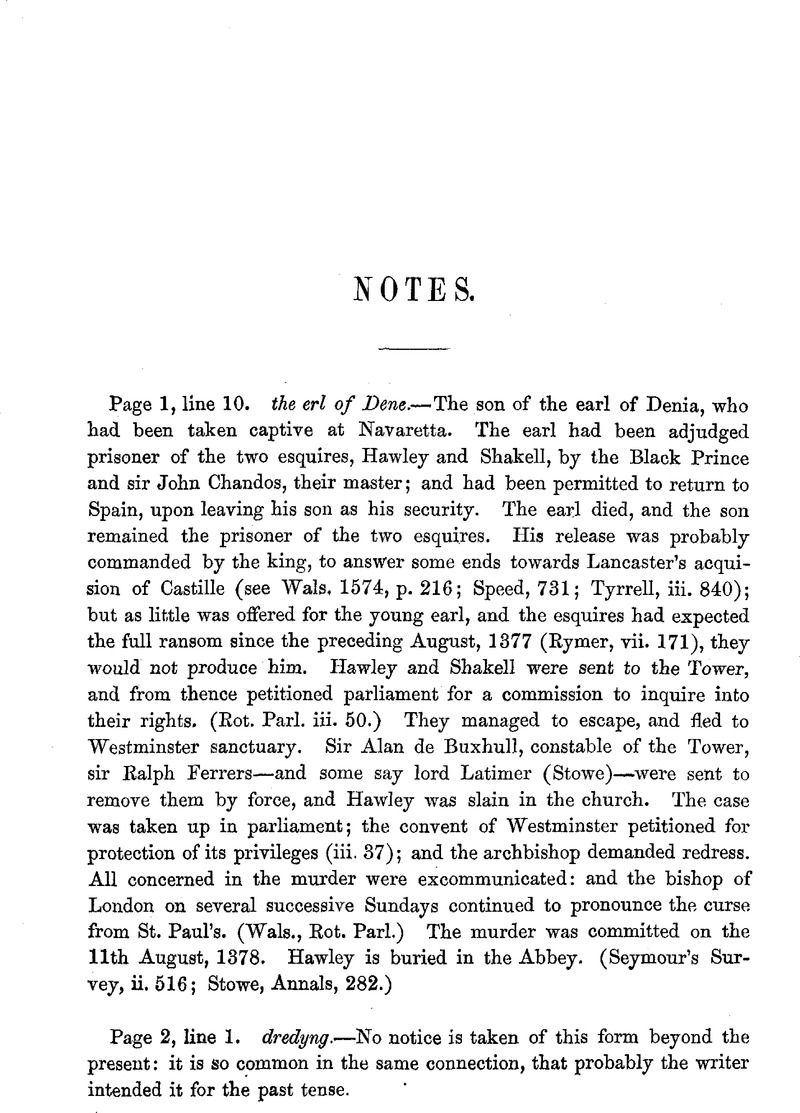No CrossRef data available.
Article contents
Notes
Published online by Cambridge University Press: 23 February 2010
Abstract

- Type
- Notes
- Information
- Camden Old Series , Volume 64: An English Chronicle of the reigns of Richard II, Henry IV., Henry V., and Henry VI. written before the year 1471; with an Appendix, containing the 18th and 19th years of Richard II. and the Parliament at Bury St. Edmund's, 25th Henry VI. and Supplementary Additions from the Cotton. MS. Chronicle called “Eulogium.” , December 1856 , pp. 143 - 211
- Copyright
- Copyright © Royal Historical Society 1856
References
page 155 note * A very interesting account of the royal procession through London, and of the presents to the king and queen, written in Latin elegiacs by Richard Maidstone, has been published by the Camden Society. “Richard Maidstone,” says Mr. Wright, “was in great repute at court,” and contemporary with what he describes, since he died in 1396.
page 156 note * We are indebted to the English Historical Society for this valuable and interesting chronicle: translated and edited, with copious notes, by Benjamin Williams, F.S.A,
page 169 note * Creton's narrative of the revolution by Henry of Lancaster and the deposition of Richard, &c. has been translat.ed, with plentiful notes and historical excursuses, by Rev. John Webb, in Archæologia, xx. Creton was an ardent admirer of Richard; he tells us he loved the king because he dearly loved the French.
page 183 note * Alluding to the present of tennis-balls said to have been sent by the Dauphin to Henry. “Somewhat in seorne he sent to the kyng a tonful of tenys ballis, for to play him withal and his lordis, and said that hit become hym better than to mayntayne ony werr.” (Rawl. 190, &o.; see Poem on the Siege of Harflet and Battle of Agyncourt, Hearne's Elmham, 359 )
page 204 note * We find a descent was expected as early as Jan. 28th, when the king issued letters to several noblemen, knights, sheriffs, &c. to flock to his standard with forces. (See Acts of Council, vi. 307–310, and our chronicler's statement.)




